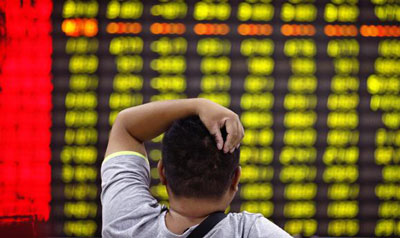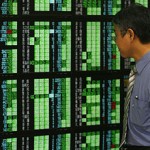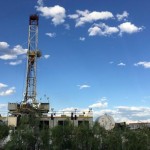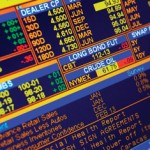FTSE and European markets edge higher ahead despite Asia decline

UK and European stocks wavered early on 21 January before gradually edging into the black, as they successfully shrugged off a disappointing session in Asia, where equity markets fell across the board.
Midway through the session, London’s FTSE 100 was up 0.45%, while Germany’s Dax and France’s CAC 40 were 0.70% and 0.73% higher and the Pan European Stoxx 600 index gained 0.74%.
After falling sharply earlier in the week, oil prices were broadly unchanged, with both Brent crude and West Texas Intermediate gaining just 0.07% to trade at $27.90 (£19.71) a barrel and $28.37 a barrel respectively.
“As ever, the feeling is that wherever crude prices move, the indices will follow given a relationship which seems to be stronger than ever,” said IG’s analyst Joshua Mahony.
“The issue here is one of confidence and, unfortunately, the only confidence that seems to be evident is that of traders who believe both crude prices and subsequently the FTSE 100 will go down.”
The timid fightback staged by European stocks could come under threat later in the session, with the European Central Bank (ECB) set to announce its interest rates policy at 12.45pm GMT, followed by a press conference from ECB’s President Mario Draghi at 1.30pm GMT.
The ECB is expected to maintain the status quo and will most likely reinforce its dovish stance.
“At this stage, the ECB is not in a position to satisfy the insatiable euro market,” said London Capital Group’s analyst Ipek Ozkardeskaya.
“The ECB will likely adopt a clever strategy and let the market realise that the euro investments could well be swapped against better-yielding currency assets once the storm is over.”
Elsewhere, Asian markets were firmly on the back foot, with the Shangai Composite Index falling 3.23%, while Hong Kong’s Hang Seng and Japan’s Nikkei 225 tumbled 1.82% and 2.43% respectively.
“A number of commentators are pointing to a further rout in oil prices as the catalyst for the fall,” said Michael McCarthy, chief market strategist at CMC Markets.
“The logic is tenuous at best. Oil prices are falling because supply is increasing – not due to weakening demand.
“While this may have deflationary impacts, on balance lower input prices for companies are good for profits and the broader economy.”
The sharp decline came after the People’s Bank of China revealed it will inject CN¥290bn (£31.15bn, $44.09bn) into the markets via a 28-day reverse bond repurchase agreements, and will inject CN¥110bn through seven-day reverse bond repurchase agreements.
This means the People’s Bank of China (PBOC) will inject a net CN¥315bn into the market this week.
Source: IBTimes – FTSE and European markets edge higher ahead despite Asia decline





























